
Nick Ferrari 7am - 10am
13 November 2019, 08:28
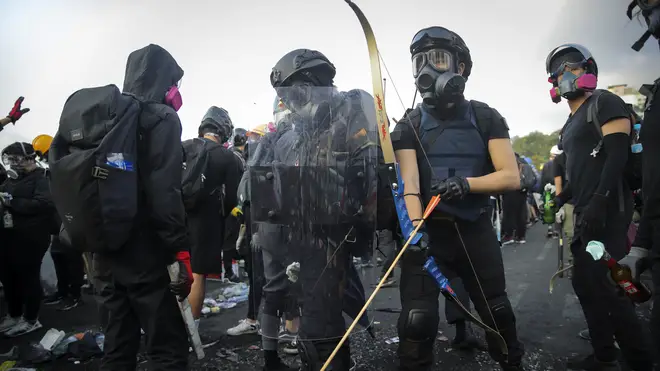
Security has been increased around Hong Kong and its university campuses following a night of violent clashes between police and anti-government protesters.
Hong Kong has woken up to closed subway and rail stations after demonstrators blocked access and vandalised trains overnight.
Tuesday evening saw battles break out at the Chinese University of Hong Kong, with petrol bombs and fires lighting up the night time scene.
A police official warned protesters were carrying out "insane acts" and Hong Kong was on the brink of a total breakdown after more than five months of protests.
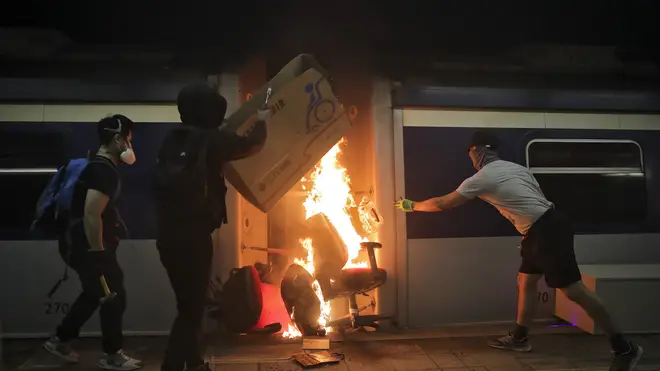
Referring to the last two days of violence, Senior Police Superintendent Kong Wing-heung said: “Our society has been pushed to the brink of a total breakdown.”
Protesters have thrown rubbish, bikes and other items onto metro tracks and overhead power lines, paralysing the transport system.
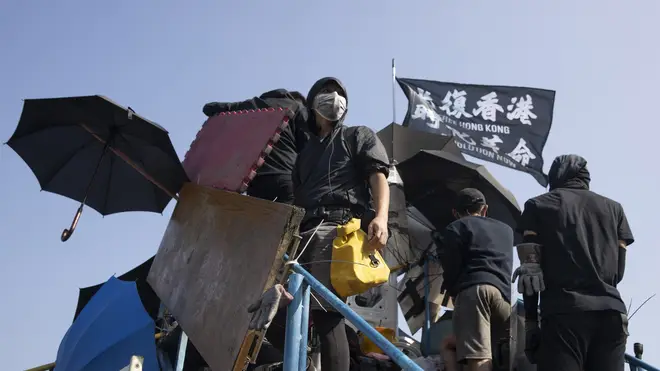
Groups of riot police were deployed to areas of central Hong Kong and outlying territories to try and contain new violence.
Students armed with petrol bombs and bows and arrows at the Chinese University prepared for new clashes with police.
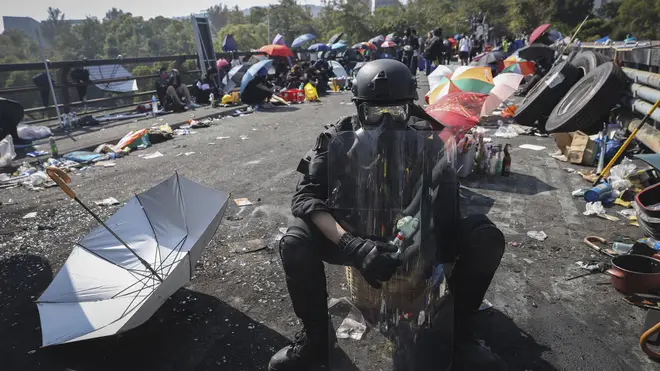
The university's student union attempted to appeal to the High Court for an injunction to prevent police from entering the campus without a warrant or the school's approval.
Late on Tuesday police stormed the campus with the aid of tear gas and water cannon.
A decision is expected late on Wednesday from the courts into the injunction which would also prevent officers from using crowd control weapons, such as tear gas and rubber bullets.
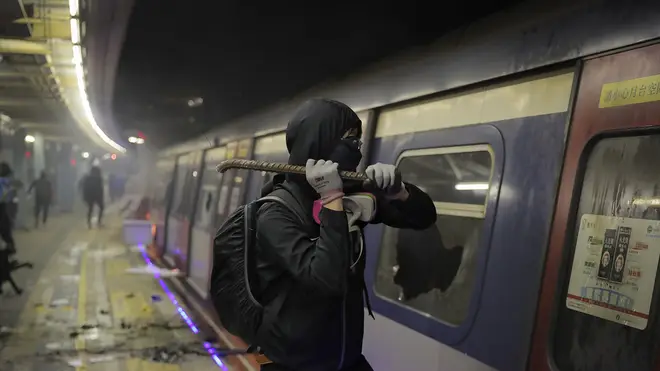
Recent weeks have been marked by escalating vandalism of shops linked to mainland China and train stations, and assaults by both protesters and pro-Beijing supporters.
On Monday a police officer shot a protester during a struggle as violence in the territory escalated.
In another neighbourhood, a 57-year-old man who was defending China was set on fire after an apparent argument.
Both remained in a critical condition in hospital on Wednesday.
Police have arrested more than 3,500 people since the movement began in June.
The protests began over a proposed law that would have allowed criminal suspects to be extradited to mainland China, where they could face opaque and politically sensitive trials.
Activists say the bill was an erosion in Hong Kong's autonomy and civic freedoms, which China promised would be maintained for 50 years under a "one nation, two systems" principle when the former British colony returned to Chinese control in 1997.